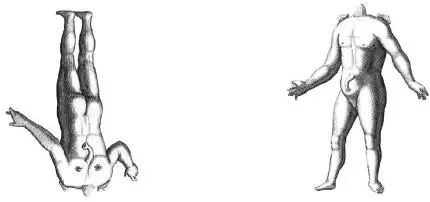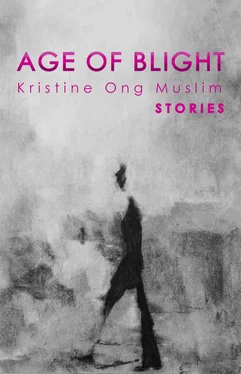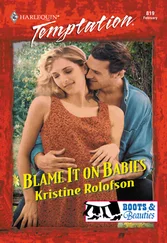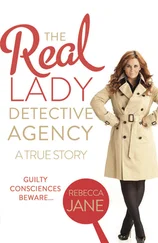Beth continued the way she was because there was nothing any of us could do, the same way we couldn’t force back the water leaking out of a cracked vase. Even if we managed to put the vase back together by gluing its cracks, the water, some of it anyway, would already be irretrievably lost. And Beth, to be sure, was cracked. And some of what Beth contained inside her had already dribbled and been absorbed by the area rug, seeped into the floorboards beneath, leached into the baseboard’s tiny cracks. Some of Beth had already evaporated into the atmosphere. And so Beth — what was left of Beth — stayed inside her room most of the time. There was no need to eat or drink. There was no need to sleep. There was no need to need anything. As expected, isolation would draw her in, because pure isolation, having no notion of emotional pain, would seek out those that belonged to its fold.
After her formaldehyde treatment, she helped me clear her room of unnecessary objects. The undead don’t have any use for a bed, for example. Or a chair, a desk lamp, a mirror. So, we emptied her room. Of course, I did all the heavy lifting to avoid accidents that might injure her. People like Beth won’t ever heal.

She kept on looking out of the tinted glass windows of her empty room, observing with a clinical detachment, which could be mistaken for curiosity, the children playing on the street. The children who rolled the glittery red things, the children who thought they could still live forever, the children who did not know that it could someday happen to them.
The children could not see Beth by the window.
Beth could not see the children.

It was not an accident at all. I planned on the most opportune time for my family to find out that the removal of my tentacle had not suppressed my predatory urges. And in all this time, I also could not stop thinking about that room in our house, the one with no windows and a thick door lined with steel, a door that only locked from the outside.
I chose a Sunday afternoon in April. April was the time of the year when the northern sky developed a loathsome purple tinge, a consequence of the early stages of redshifting. The government issued warnings about this phenomenon, warnings which were useless because they could not change the eventual course of things — that we were all headed for extinction and no one could do anything about it. That afternoon was perfect. My family deserved a little pep in their long uneventful lives.
When my family discovered me behind the shed, I was disheveled in all ways that a person could be disheveled. I crouched in the bushes. My mouth was clamped to the neck of the bloodied, still twitching chicken. The feathers made me gag, but I kept on chomping, kept on tearing at the doomed fowl’s flesh until, at last, the animal, the prey, stopped twitching — a weakling’s ultimate recourse.
My father restrained me, gagged me so I couldn’t bite him, and then half-dragged, half-carried me inside the house. It was probably out of shame that he ended up manhandling me. He needed to get me inside the house before anyone could see the bloody spectacle I had created. With her screeching, my sister woke the neighbors and our hibernating house pets. Oh, I wanted to snap her neck just to shut her up, eat her and my father, devour their corrupted bodies and leave only the bones for the rare scavenging birds of prey to pick, but I just could not get to them. They managed to chain me up and plug my mouth.
My mother said that I had the peculiar maniacal look she associated with the residents of Bardenstan, the place nearest the epicenter of the 2115 fallout. Her comment was not meant to be an insult. She said it in the manner of someone expecting me to reform afterwards. My mother was a first-rate Loyal, thus the genuine kindness. My father bought her from an auction house. I never heard him complain about her expensive solar upkeep and collagen sustenance. If he did, well, that would be another story. My mother, a first-rate Loyal to the core, was wired to love me unconditionally with or without my tentacle.
Do you know that there’s a picture of me hidden inside my parents’ safe? In that picture was the real me. It showed how I looked the day I was born. I saw it only once, when I turned twelve, the mandatory age for Truth — the government’s thirty-three-year campaign to make parents — both pre-arranged and natural — confess to their children about the circumstances of their birth. The Truth was supposed to foster family bonding, a hazy concept that was prevalent in the nuclear families of the late twentieth century.
I believed in it. Or I thought I did. I believed in any effort, no matter how preposterous, to be truthful.
In that picture, I did not look human, because I had an enormous tentacle protruding from the side of my body. The tentacle was covered by bluish skin. The skin was sparsely dotted with tiny sacs. Deoxygenated blood, the doctor curtly answered, when asked why it was bluish. The tentacle allowed for voluntary movement. It was, more or less, a prodigious limb.
“The tentacle,” the doctor went on to explain to the younger versions of my parents, “is an extension of the appendix. This anomaly is linked to predatory instincts.”
I looked it up in an exotic biology textbook, memorized the passage that defined what scientists thought I had: the tentacle is not a simple anatomical curiosity. It is associated with the need to hunt, to assemble in packs — a behavior that has been observed in long-extinct animals like canines. If the tentacle is not cut out in time, or before the host turns sixteen, the predatory instincts may prove to be overwhelming and may lead a person to harm others, as in the harrowing case of Flynn Romero, 19, who finally had his tentacle surgically removed when he was seventeen. Romero, who attacked everyone in a department store toy section where he worked on a contractual basis, killed nine people that day .
Ah, Romero! I thought when I first read about his case. Had they stopped moving and teasing you to hunt them, you wouldn’t have been interested in them and they would have survived, right?
Now in that picture in my parents’ safe, I had the squelched look of defeat, the squelched look of an ancient creature that believed itself to be dangerous but had no faculties to behave as such. It looked as if something vital had been seized from me. And something, indeed, had been taken from me — albeit temporarily and not fully. In that picture, my lips had the hideous color of raw and ragged flesh, as if I had chewed them up. You see, even pre-selection and genetic engineering could ruin even the most ordinary of human stock. Something could always turn out wrong. My sister and I were deemed to be from a good batch during the recount of 2120. But look at how I turned out — sentient and disfigured, maladjusted and happy — a familiar fixture, if I had lived years ago.
My parents had my tentacle surgically removed when I was five years old. The visible section of the tentacle was eliminated. The part that was anchored to my spine was left untouched. Removing that part could kill me.
I missed having my tentacle around. As a child, I used to swing from it on the banister.
Outerbridge, the only place in America where crops are still grown in soil, does not take kindly to deformities. There are towns where physical aberrations are tolerated. Bardenstan, for example. Anyway, that’s another story. (I have plenty of stories left in me. Now they’re mostly about the hunt, the hunt, the unending hunt.)
Читать дальше














